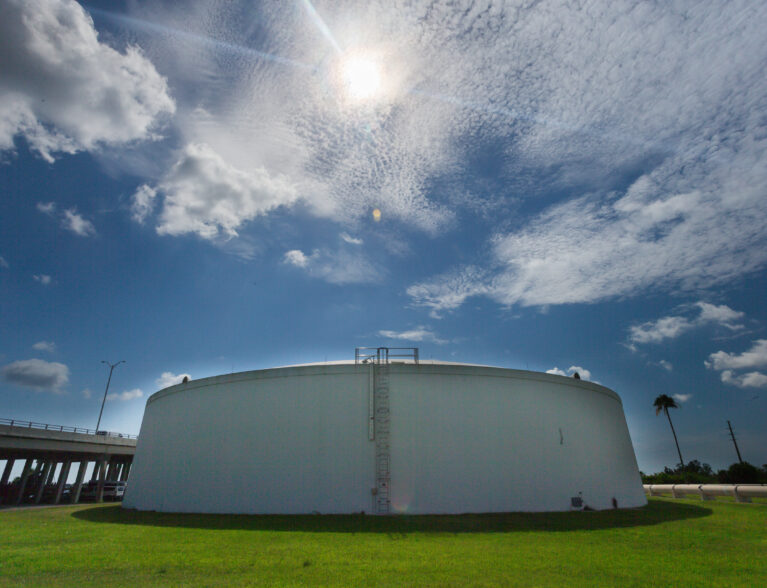
The County Commission has agreed to continue talks with Vero Beach about taking over some of the municipality’s wastewater treatment services – a move that could save the city tens of millions of dollars if it occurs.
Vero Beach city leaders in September directed city staff to talk with the county to see if the jurisdiction is interested in taking over the city’s wastewater operation at an inland site, following the City Council’s decision to move Vero’s unsightly treatment plant from the shore of the lagoon as soon as possible.
County staff has been meeting with city staff to discuss how the merger might work, and recently returned to the commission for further instructions.
In the scenario under discussion, the city would maintain its existing wastewater collection system, accounts and customers within the city limits, while the county would be the wholesaler providing direct bulk wastewater service to the city, County Administrator Jason Brown said.
“The guiding light is that we do no harm to the county’s rate payers,” Brown said. “If there is an opportunity where the county can provide assistance to the city and it’s a better option than them building their own wastewater plant, then I think that’s a reasonable thing for us to work towards.”
The city’s existing wastewater treatment plant on the lagoon shore, which can treat 4.5 million gallons per day, was built in 1977 and is nearing the end of its functional life. If the city is forced to build a new plant near the airport, it would take more than two years and cost an estimated $50 million.
The county doesn’t yet have a cost estimate for the merger but said the city will have to pay to extend wastewater lines from the city system to the county treatment facilities. The county’s three wastewater plants have the capacity to treat 12 million gallons per day, officials said.
The county currently has enough excess capacity to handle the city’s wastewater at its existing plants, according to a staff memorandum, but Commission Chair Susan Adams said she is worried about future capacity as more subdivisions are built in the county.
“I don’t want us to hamstring ourselves in the future,” Adams said. “We have the big issue of the Sebastian annexation hanging out there and that may or may not impact what we have going on and just future growth in general.”
“I don’t want us to get 10 years down the road and wish we had gone in a different direction,” Adams added. “I’m fine with continuing discussions. I think that’s what we need to do, but I have my concerns.”






